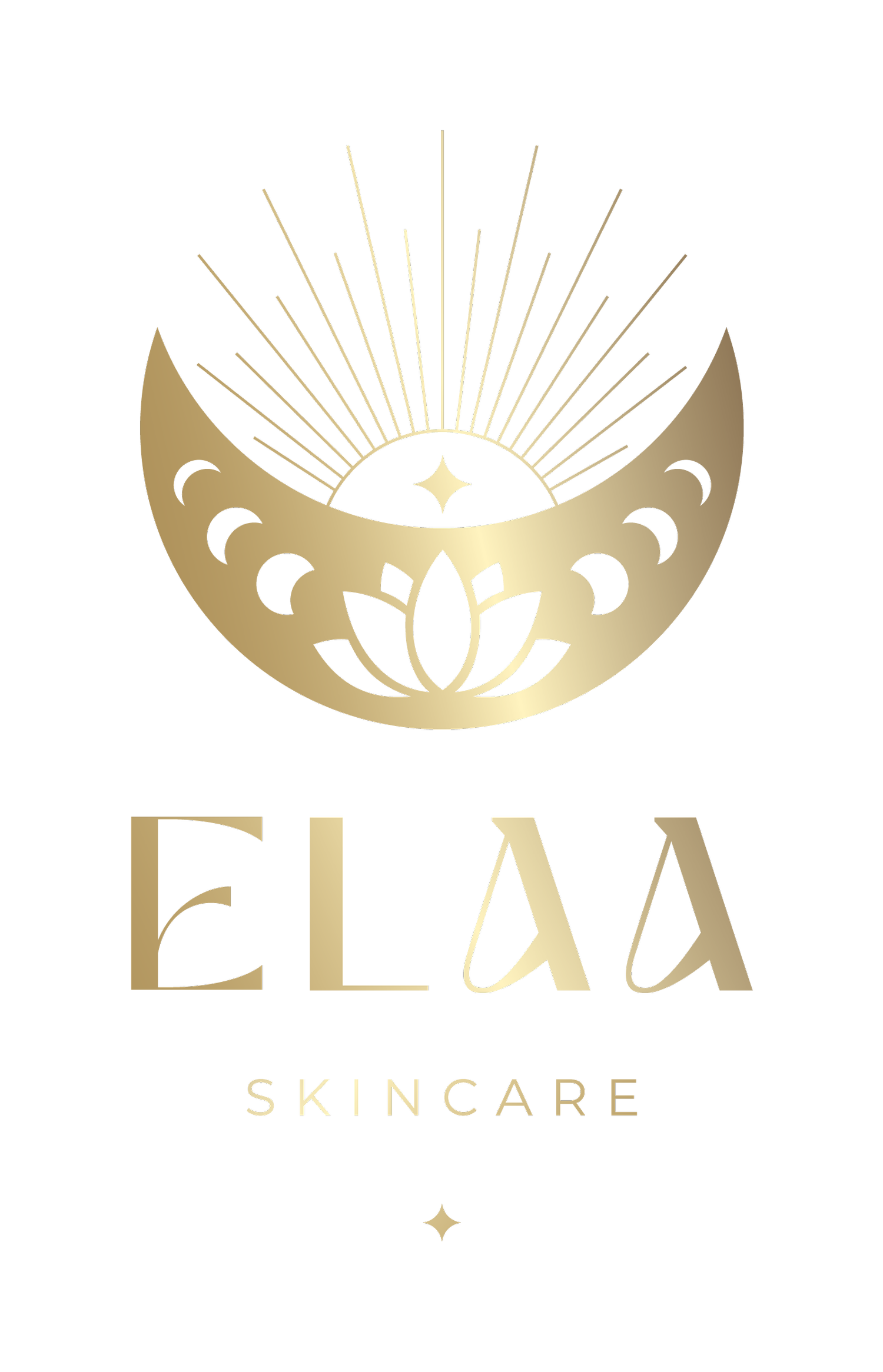The Benefits of Vitamin C - Glowing Skin and Immune Health (and why many vitamin C serums are toxic)
Vitamin C naturally begins to diminish in the skin over time. Using it in a topical application can work wonders in promoting and enhancing the quality and radiance of your skin.
Skincare products formulated with Vitamin C are making huge gains in popularity these days. With so many potential benefits from the topical use of this powerful antioxidant, it's easy to understand why! However, it is important to make a distinction between the many different forms of this vitamin being used in products....as it does actually come in many forms...sometimes synthetic and sometimes natural.
Much of the Vitamin C being used in topical products can actually cause damage to the skin...
Wow...this is huge! Take a moment to really soak that in because the implications here are important... particularly if you use skincare products containing Vitamin C. Unfortunately, it is true that the majority of Vitamin C products being marketed are actually having the very opposite effect on user's skin than intended/marketed. Vitamin C in many forms will cause damage to the skin when used topically. And, the vast majority of Vitamin C skincare products are formulated with damaging forms of this vitamin.
Let's take a step back here before we dive into all of this, and remind ourselves of the beauty and benefits of Vitamin C (in its proper form). . . That is, after all, why we are shedding light on this issue. We understand the pure potential for this beauty care ingredient, and wish for it to be utilized without causing harm.
benefits of vitamin c
When we take in adequate amounts of Vitamin C, we reap astounding benefits. There are volumes that have been written on this, but let's just mention a few highlights.
Vitamin C is highly recognized in its ability to support the immune system, along with the health of the adrenal glands. This could be why adequate levels of this vitamin are associated with reduced levels of stress and an overall greater sense of wellbeing. Vitamin C intake is crucial for cellular health and support, and it is also a key player in the production of glutathione within the body (think detoxification in a toxic world).
When it comes to the health of the skin, Vitamin C plays a big role in its maintenance and repair.
vitamin c for skin
Vitamin C is an important nutrient for the health of our skin, and our body's largest organ can benefit from its use both internally and externally.
One of the key reasons that it is so useful as an anti-aging ingredient is that it greatly assists in the production of collagen. As you amp up this process in the skin, fine lines and wrinkles will oftentimes diminish. Collagen is a powerful rejuvenator to the skin, and by applying Vitamin C topically, you are directing the production of collagen to specified areas of the body. Healthy collagen levels equate to healthy blood vessel structure, which then enables needed nutrients to make it to the furthest reaches of your tissues. It is a beautiful process, and Vitamin C is a major player in its graceful unfolding.
Being a dynamic antioxidant, Vitamin C also has the ability to protect the skin from free radicals and UV radiation. In addition, it protects against skin discoloration, and also lightens pigmentations such as age spots and freckles. Vitamin C is one of the first responders when there is a wound to be healed, helping to repair damaged tissues at an expedited pace.
So...no brainer here...Vitamin C is amazing, and any way that we can strategically invite healthy forms of it into our tissues is to be encouraged.... and most definitely appreciated by the body....
So what was that about healthy forms of Vitamin C? Isn't Vitamin C just, Vitamin C?
Well, not exactly. In a perfect world maybe, but things have gotten a little complicated....
sources of vitamin c
acerola cherries
There are several foods that contain Vitamin C. The highest amounts are found in Kakadu Plum, Acerola Cherry, Camu Camu Berry, and Indian Gooseberry or Amla berry. Citrus fruits are also famously known for containing Vitamin C, although in lower amounts than the previously mentioned fruits. When you go to purchase a Vitamin C supplement or skin care product, you could be receiving any number of versions of the vitamin. Some are natural, many are synthetic. Some of the names you might see on a label include l-ascorbic acid, tetrahexyldecyl ascorbate, sodium ascorbate, ascorbyl palmitate, and ester C (magnesium ascorbyl phosphate).
The most commonly used source of Vitamin C in skin care applications is Ascorbic Acid, or L-Ascorbic Acid.
ascorbic acid
This type of vitamin C can be synthetic or naturally derived. Of course, we want to avoid synthetics. On the other hand, if its plant-sourced, there's a strong probability that its a corn derivative - and unless specified, GMO...i.e. avoid at all costs. (However, there are a handful of reputable manufacturers producing certified non-GMO Ascorbic Acid).
The trouble with L-Ascorbic Acid in this isolated form, even when from a non-GMO natural-source, is that its not easy to stabilize. This is true for all Ascorbic Acid, whether its synthetic or natural. It oxidizes quickly when added to a formula. A common solution to this problem by skin care manufacturers is to use a chemical stabilization process, which presents an entirely new set of problems in terms of healthy skin care.
Between the rapid oxidation of L-Ascorbic Acid in skincare formulations, and the chemical stabilizers that may or may not be used to address this issue, there are a lot of undesirable things going on with the vast majority of Vitamin C skin care products.
diy vitamin c serum
DIY Vitamin C serums are enjoying a streak of popularity. If you decide to go this route, be sure to do your research to ensure you are not using harmful substances on your skin. If you decide on using L-Ascorbic Acid, make sure that it is from a non-GMO plant source, and that you make only enough serum for a single use (as the Vitamin C will begin oxidizing as soon as you mix it into the serum). Be sure to do a skin test to make sure this agrees with your skin, as too high of a concentration can cause a serious reaction.
best form of vitamin c
The best form of Vitamin C, taken internally or used topically in skincare, is in its whole food form. If you are going to use an extracted form, look for L-Ascorbic Acid from as pure as source as possible, and non-GMO. Again, look for powder or capsules of Kakadu Plum, Acerola Cherry, Camu Camu Berry, and Indian Gooseberry or Amla berry. And eat citrus fruits.
Indian Gooseberries or Amla Berries
Think in terms of whole food extracts and bioferments for the most concentrated, active and assimilable forms of Vitamin C.
Sunshine Dew Vitamin C Serum
Elaa’s Sunshine Dew Vitamin C Serum derives its potent Vitamin C content from the abundance of natural whole fruit extracts and bioferments that its formulated with. This powerful serum is crafted with an array of superfood botanicals, including Kakadu Plum, Acerola Cherry, Camu Camu Berry, and Indian Gooseberry, which contain nature's highest levels of Vitamin C, all in a concentrated, stable, and bio-available form. Sunshine Dew Vitamin C Serum is safe and effective, and you can be assured that you are getting all the benefits of topical Vitamin C, in an exquisitely crafted-formula that is food for your skin!
Capture the brilliant radiance of the sun with the ultimate all-in-one vitamin C treatment for skin that glows like sunlight on morning dew. Kiss skin with this highly concentrated formula of the most bio-available forms of Vitamin C to reveal healthier, brighter, and more youthful skin. Dripping with the most effective and luxurious amounts of stable Vitamin C from Tetrahexyldecyl Ascorbate (Vitamin C ester), Kakadu Plum, Indian Gooseberry, Camu Camu Berry, and Acerola Cherry, this sunny dew reverses signs of aging and damage. Niacinamide, as the perfect companion to Vitamin C, supports the Vitamin C power and also helps acne, eczema, and other inflammatory skin conditions and increases the natural production of ceramides, for increased moisture and skin barrier protection. Ferula Foetida, Licorice, Green Tea, and Lemon Peel treat melasma, hyperpigmentation, age-spots, and all forms of uneven skin tone. MSM helps to build supple, healthy tissue and Alpha Lipoic Acid reduces cellular inflammation, regenerates, and protects the skin.



